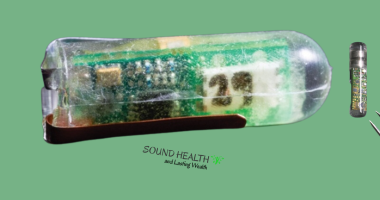Dementia is a pattern of mental decline caused by different diseases and conditions. The neurodegenerative illness has crippling effects on the brain’s intellectual functions, which features increasing memory loss and confusion. As the disease damages the brain, short-term memory is often affected the earliest. However, neuroradiologist Emer MacSweeney, CEO of re-cognition Health, says that another sign might appear years before the onset of dementia.
As we age, most memory problems are evidence of a slowdown in the brain’s processing speed that increase the time it takes to retrieve information.
Alzheimer’s disease most often affects the short-term memory first, with long-term memory issues developing with further progression of the illness.
Mood and personality changes, however, are another key feature of the condition which could appear years before onset of cognitive decline.
Doctor MacSweeney explained: “People diagnosed with Mild Cognitive Impairment (MCI) due to Alzheimer’s disease, when questioned, will frequently admit to having experienced unexplained anxiety and subtle symptoms of short-term memory loss 18 months to two years before their cognitive symptoms of Alzheimer’s became more apparent.
READ MORE: How to live longer – how many bananas should you eat every week?
“It is important to recognise that people over the age of 60 who develop anxiety for the first time, with no obvious reason, could be showing an early feature of Alzheimer’s.
“This is separate from the ‘natural anxiety’ that accompanies an individual’s concern that they seem to be forgetting things.”
“The finding of disproportionate feelings of anxiety or anxiety for no apparent reason, when accompanied by early symptoms of short-term memory loss, should alert the possibility of early Alzheimer’s disease.”
Although there are many biological processes at play in Alzheimer’s disease, evidence points to one of the key causes being abnormal tau and amyloid proteins working together to cause cell death.
DON’T MISS: It’s time to go bananas: Japan shows the way to easy weight loss
Memory loss occurs when brain cells die, and the connection between neurons are interrupted, affecting their ability to communicate with one another. These disruptions have a variety of causes and usually cannot be reversed.
However, without the use of a prohibitively expensive scanner, early detection of the condition remains all too rare.
Doctor MacSweeney added: “Recognising this in today’s world is pertinent, because we have these new sophisticated biomarkers, and we also have new treatments designed to slow down further progression of disease.
“However, that universe is only available in clinical trials. If you’re anxious and have got short-term memory loss, your GP won’t be able to detect that you’ve got elevated amyloid and tau protein levels.
Don’t miss: Dementia: Daxx protein may play a role in prevention
“Very often, and what is frequently missed, is the fact that unexplained anxiety, particularly when coupled with short-term memory loss should ring alarm bells, as it could be an early signs of MCI due to an underlying build-up of amyloid and tau protein in the brain.”
Alzheimer’s disease can begin harming the brain years before memory loss and confusion are noticed.
Scientists therefore continue to advocate that catching the disease years or decades before its effects appear is crucial to slowing progression.
To date, there is no definitive test for Alzheimer’s disease, therefore the condition is difficult to diagnose without high specialist equipment.
Diagnosis usually occurs following neurological and mental status exams.
Doctor MacSweeney stated: “The objective is to recognise symptoms and use sophisticated biomarkers to make an accurate diagnosis, up to two years earlier than usually happens.
“As with all medical conditions, new treatments disguised to slow progression of disease and symptoms will be most effective when given as early as possible.
“This opportunity is available today in the UK, but only through clinical trials.”
Dementia Post source Daily Express









